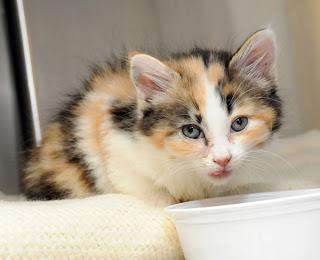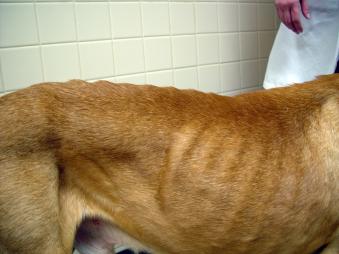Weight Loss or Poor Growth
Weight and muscle loss in adult pets or stunted growth in puppies or kittens can indicate heart disease.
Puppies and kittens that fail to thrive—especially when compared to their littermates—should have a careful examination. Your veterinarian will want to ensure there are no birth defects in the heart. However, many young animals that are born with a heart defect can grow normally. Other symptoms, such as a heart murmur, are often present in animals with a birth defect affecting the heart.
In adult animals, heart failure is commonly associated with weight loss, particularly muscle loss. This may be seen at the earliest stages in the muscles over the back, over the shoulders, on the hindquarters, or on the top of the head. This muscle loss (cardiac cachexia) is caused by hormone-like substances produced at high levels in heart failure. Appropriate treatment of heart failure, adjustment of drug therapy, dietary changes, and certain supplements may be able to minimize weight loss.
For more information on weight loss in pets with heart disease, visit our Nutrition page.
Weight and muscle loss are relatively non-specific findings that could indicate an issue in many other body systems.

